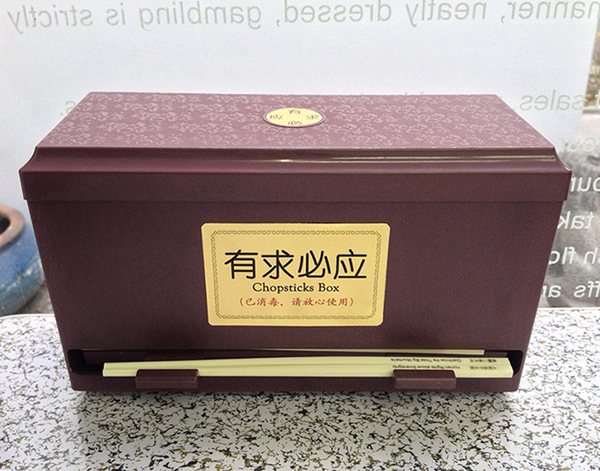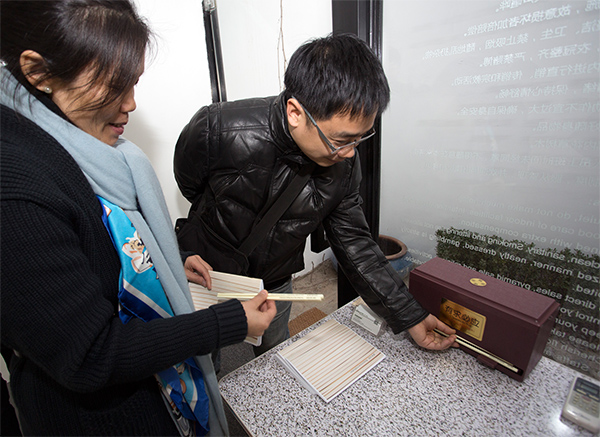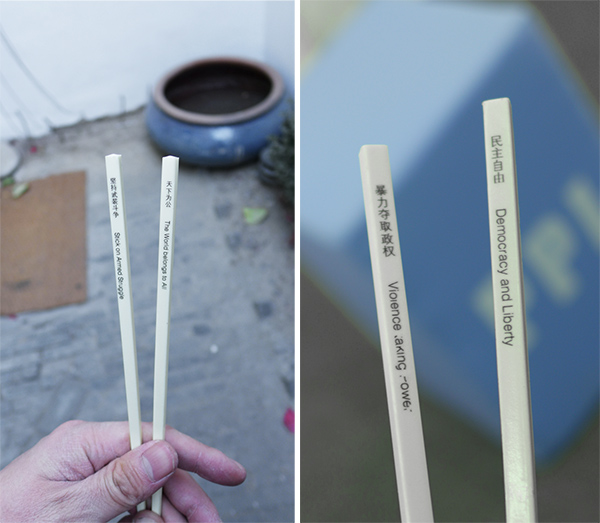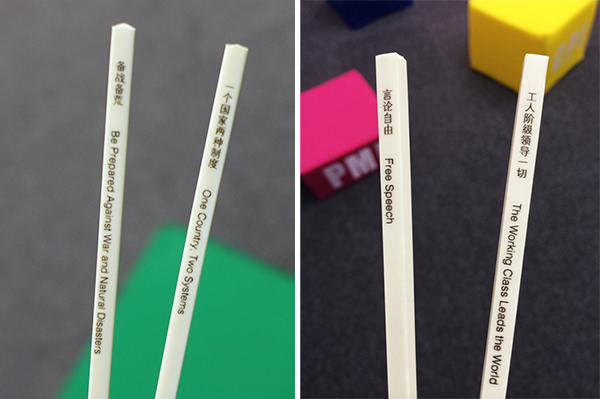筷子盒、贴纸、筷子、UV打印 / chopsticks box, stickers, chopsticks, UV print,筷子盒 / chopstick box: 18×31×15 cm,包含71 根筷子 / includes 71 chopsticks,总体尺寸可变 / overall dimensions variable,2013

作品自述 / Artist text:
理解政治离不开查验具体的政治诉求。在群众的视角里,观察政治诉求的变化更可以推导出政治的方向。虽然难以影响政策的制定,至少可以自求多福,毕竟,这类诉求攸关大多数人的生命轨迹。但是,传统的算命抽签系统是否还能适用于今天中国的复杂现实?带着这样的疑问,我注意到街头饭馆或许提示了一丝潜力,特别是饭桌上常备的自动筷子盒。它的特点是一次可以吐出一双以上的筷子,也就是一对对充满偶然性的组合结果。我将20世纪以来在中国这片土地上出现过的那些耳熟能详的政治诉求分别印刷在71根筷子的侧面;另外模仿和替换了筷子盒表面的贴纸,令其具有某种迷信色彩。而少数幸运的群众可以在填腹之际,“把握”一会儿中国现代史的历程。
—
Understanding politics is inextricably linked to the examining of concrete appeals. Seen from the perspective of the masses, observing the change of appeals proves useful for retrospectively inducing larger political orientations. Even though this won't make a difference for the implementation of policies, at least it allows one to fend for oneself. After all, such appeals are vitally linked to people's life paths. However, the question remains whether traditional fortune telling systems could be applied to the complex reality of today's China?
With this question in mind, I see slight potential revealed by street-side diners. Specifically, I paid attention on the automatic chopstick-dispenser often provided on the tables in these places. Its main feature is that it's able to spit out one or more pairs of chopsticks. Otherwise put, each pair testifies to the random contingency of combination. I took some of the most ubiquitous & well-known appeals lines from the history of 20th century's China and printed them onto the sides of 72 chopsticks. Besides, I gave the front of the chopstick-dispenser a title that is linked to superstition, as a copy/substitute of the original label. At the time of filling the dispenser, some lucky few among the masses can "get a hold" on the course of Chinese modern history.
*
展出履历 / Related Exhibition:
有求必应,地一现场,仁艺术空间,北京,2013
Responsive Institution, Look Art Space, Ren Art Center, Beijing, 2013


